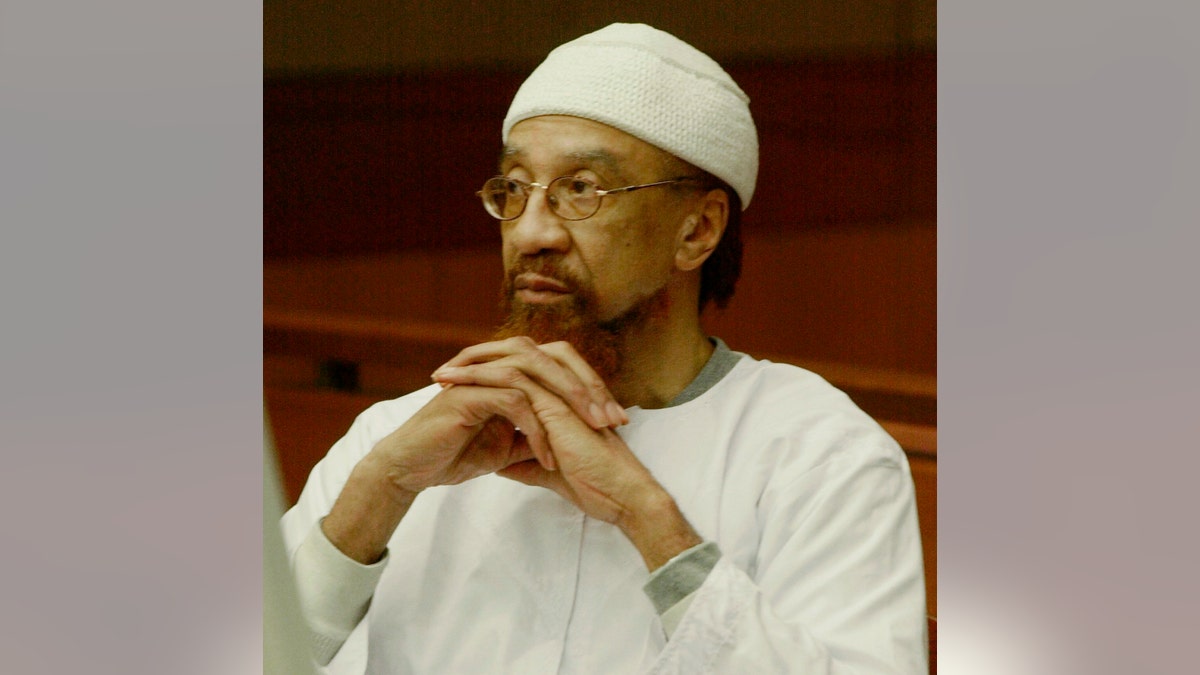
FILE- In this March 11, 2002 file photo, Jamil Abdullah Al-Amin watches during the sentencing portion of his trial in Atlanta. Al-Amin, the militant civil rights leader known in the 1960s as H. Rap Brown who was convicted of killing Fulton County Sheriff's Deputy Ricky Kinchen and wounding Deputy Aldranon English in a shootout in March 2000, is challenging his imprisonment, saying his constitutional rights were violated at trial. (AP Photo/Ric Feld, File)
ATLANTA – The Latest on a challenge to the imprisonment of a 1960s black militant who later became a Muslim cleric and was convicted of killing a sheriff's deputy (all times local):
10:50 a.m.
Supporters of a 1960s black militant-turned-Muslim cleric packed an Atlanta courtroom for arguments on a challenge to his imprisonment for the killing of a sheriff's deputy in 2000.
Jamil Abdullah Al-Amin gained prominence in the 1960s as a Black Panthers leader who went by H. Rap Brown. He later converted to Islam, changed his name and moved to Atlanta.
He was convicted in 2002 of killing Fulton County sheriff's deputy Ricky Kinchen and wounding Kinchen's partner, Deputy Aldranon English. The deputies had been trying to serve a warrant on him in March 2000.
Al-Amin says his imprisonment is unconstitutional because his rights were violated at trial by a prosecutor and the judge.
A three-judge panel of the 11th U.S. Circuit Court of Appeals heard arguments in the case Friday.
___
8:45 a.m.
A 1960s black militant-turned-Muslim cleric is challenging his imprisonment for the killing of a sheriff's deputy in 2000, saying his constitutional rights were violated at trial.
Jamil Abdullah Al-Amin gained prominence in the 1960s as a Black Panthers leader who went by H. Rap Brown. He later converted to Islam, changed his name and moved to Atlanta.
He was convicted in 2002 of killing Fulton County sheriff's deputy Ricky Kinchen and wounding Kinchen's partner, Deputy Aldranon English. The deputies had been trying to serve a warrant on him in March 2000.
Al-Amin says his constitutional rights were violated at trial by a prosecutor and the judge. He's asking the 11th U.S. Circuit Court of Appeals to find that his imprisonment is unconstitutional.

